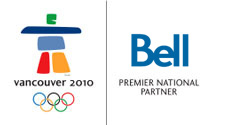TELUS versus Bell
 Case three identified the concept of ambush marketing, a particularly interesting topic which considers the ethical implications of an organization.
Case three identified the concept of ambush marketing, a particularly interesting topic which considers the ethical implications of an organization.
Western telecom provider, TELUS, lost to Easter telecom provider, Bell, for the spot as the national sponsor for the 2010 Olympic Games. This win was huge, as they would also be the sponsor of the London 2012 Games; an opportunity not to be missed— a long-term strategic approach. Winning the position differentiated Bell from its competitors and thus gave them a competitive advantage. However, TELUS’ affiliation with Whistler made it much more difficult for Bell to take advantage of their win.
Is ambush marketing unethical?
Personally, I don’t think so. Marketing is marketing, and there are ways around it to be successful, like TELUS. TELUS simply took advantage of their connections with Whistler and other winter sports games, and promoted their brand in the right place, at the right time. It goes to show that despite Bell’s win, they acted too slowly to initiate any marketing efforts.
Some may feel that the $200 million spent to become the national sponsor, by Bell, was a waste of money, but not necessarily. They outbid TELUS, and in return, were able to increase their operating revenues following the Winter Olympics in February. It was just a matter of how well Bell would take advantage of their investment.
This unlucky outcome for Bell can thus be better managed if VANOC created a contract for participating companies in the bid to become a national sponsor. This legal contract would inform participants that they cannot initiated in activities that would hinder the advantage of the winner of the national sponsor. In doing this contract, losing companies could still work around marketing for the Olympics, but this contract would make it more difficult for them to do so.
Reply